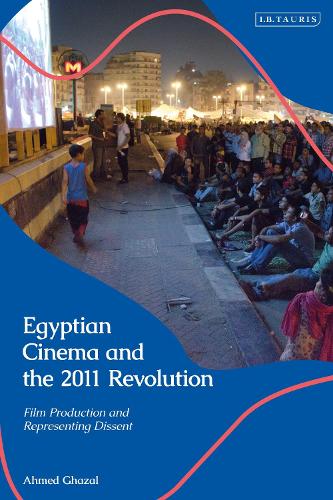
Egyptian Cinema and the 2011 Revolution: Film Production and Representing Dissent
(Paperback)
Available Formats
Publishing Details
Egyptian Cinema and the 2011 Revolution: Film Production and Representing Dissent
By (Author) Ahmed Ghazal
Bloomsbury Publishing PLC
I.B. Tauris
19th May 2022
United Kingdom
Classifications
Tertiary Education
Non Fiction
Individual film directors, film-makers
Middle Eastern history
Revolutionary groups and movements
384.80962
Physical Properties
Paperback
208
Width 156mm, Height 234mm
Description
Egypt's film industry is the largest in the Middle East, with an output that spreads across the region and the world. In the run-up to and throughout the 2011 Revolution, a complex relationship formed between the industry and the people's uprising. Both a form of political expression and a documentation of historical events, 'revolutionary' film techniques have contributed to the cultural memory of 2011. At the same time, these films and their makers have been the target of increasing state control and intervention. Ahmed Ghazal, drawing upon his own background in film-making, looks at the way in which Egyptian film has shaped, and been shaped by, the events leading up to and beyond Egypt's 2011 revolution. Drawing on interviews with protagonists in the industry, analysis of films, and archival research, he analyses the critical issues affecting the political economy of the industry. He also explores the technological developments of independent productions and the cinematic themes of dictatorship, poverty, corruption and police brutality that have accompanied the people's calls for freedom - and the counterrevolution that has tried to suppress them.
Author Bio
Ahmed Ghazal was awarded a PhD in Media and Communication Studies from the University of Auckland, New Zealand, in 2018. He has an extensive filmography, including having directed Beyoulo (2011), winner of the Tropfest Arabia Short Film Festival.
